The Most Glorious of Wars
“Death does not exist, there are only migrations”…
“They left and behind them there was nothing. Nothing.” Crnjanski
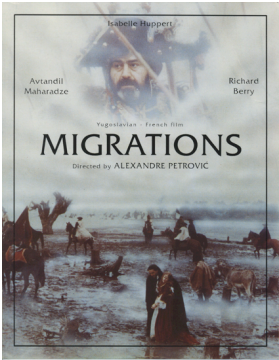 “I always thought that Migrations was a seminal work, Petrović said. I always wanted to adapt it for the screen. First of all, because it is a wonderful story whose heroes epitomized the margins of Central Europe in the 18th century – and what is marginalized is always interesting.
“I always thought that Migrations was a seminal work, Petrović said. I always wanted to adapt it for the screen. First of all, because it is a wonderful story whose heroes epitomized the margins of Central Europe in the 18th century – and what is marginalized is always interesting.
Second of all, I find it very relevant to the present day. There is a striking parallelism between this time and our own; a time of migrations and population mixing, where the old rules have fallen without giving rise to new ones, where values have been lost, and where people live in disorder and indiscipline, looking for something that has not yet been born. It is this time of change and confusion during important moments of mutation that I want to express, all the while conserving a writer’s rhapsodic tone.”
| Production: | France, Yugoslavia 1989 |
| Executive production: | «TRI» Beograd, Yugoslav-French film |
| Screenplay: | After the novel “Migrations” by Miloš Crnjanski Aleksandar Petrović in collaboration with Jacques Doniol-Valcroze |
| Director: | Aleksandar Petrović |
| Set design: | Milenko Jeremić, Boris Moravec |
| Cinematography: | Witold Dabal, Igor Luther |
| Art director: | Coka Đorđević |
| Production: | Nikola Popović, Goran Crnjanski |
| Film editor: | Vuksan Lukovac |
| Costumes: | Jacques Fonteray, Divna Jovanović |
| Music: | XVII and XVIII Century marches Serbian, Russian and Greek religious music Dragan Mladenović – Thank the Lord Olga Dusanić – Lord’s prayer |
| Choice of music: | Aleksandar Petrović Branislava Petrović |
| Cast: | Avtandil Makharadze, Isabelle Huppert, Richard Berry, Bernard Blier, Erland Josephson, Dragan Nikolić, Miki Manojlović, Rade Arković, Petar Božović, Ljubomir Cipranić, Jelica Sretenović, Dobrica Jovanović, Jovan Burduš Janićijević, Ružica Sokić, Aljoša Vučković, Stole Aranđelović, Ivica Pajer, Mladen Krstevski, Martin Obernigg, Dragana Jugović, Branislav Jerinić, Tihomir Pleskonjić, Emanuel Cenčić, Gojko Baletić, Lazar Barakov, Milan Mihailović, Radko Polic, Marija Šipka, Miodrag Krivokapić, Branislav Lecić, Vladislava Milosavljević |
Gallery
About the BOOK “MIGRATIONS”
The film is inspired by Serbian novelist Miloš Crnjanski’s novel by the same name, which received the award for Best Foreign novel in France in 1986. It tells the story of the lives of the mercenaries in the Baroque Wars of the 18th century when the Austro-Hungarian Empire ruled Serbia. “A masterpiece of Slavic literature.” LE POINT (1986).
The novel received the prize for Best Foreign Novel in France.
“Crnjanski is a Melville haunted by Dostoyevsky. It took ten years to finish the translation of “Migrations”. It will take less time for it to take its place amongst the greatest works in Slavic literature.” Le Monde 8/8/1991 – Nicole Zand
“A masterpiece where the director of I Even Met Happy Gypsies, Alexander Petrovic, has achieved a still invisible super production.” Jean-Michel Frodon, Le Monde, August 8th 1991.
Plot Summary
Migrations tells the fate of mercenaries during the baroque wars of the 18th century during the Austro-Hungarian occupation of Serbia. Austrian empress Maria-Theresa von Habsburg wants war with the French before taking on the Prussians. She sends Serbs, who in her opinion are lesser men, to the front lines. However, they are ready to regain a modicum of independence at all costs.
The movie follows the parallel fates of the two Isakovitch brothers, Vouk and Archangel. The first (played by Avtandil Makharadze) leads a regiment of Serbian mercenaries to fight on the way to France. The second (Richard Berry), a handsome and shrewd merchant, claims his sister-in-law Daphina (Isabelle Huppert), whom he has cared for in the absence of his brother. Tragedy and death await…
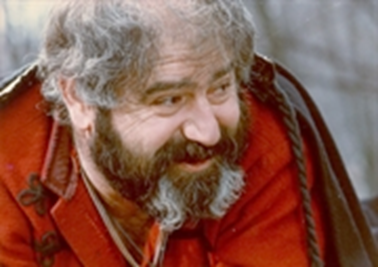
Avtandil Makharadze (Vuk Isakovitch)
Festivals:
|
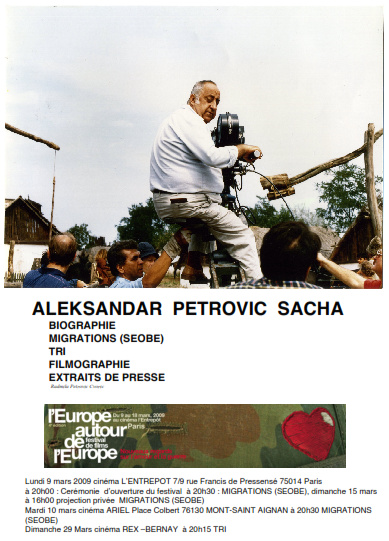 |
Awards, honors, festivals
For SEOBE – the Serbian version of MIGRATIONS (modified by Aleksandar Petrovic to allow distribution in Serbia)
- 23rd Film Festival in Sopot, Serbia, July 1994: Kosmaj Prize
- International Film Festival of Palic, Serbia, July 1994
- 8th Yugoslav Film Festival of Herceg Novi, Montenegro, August 1994 (non-competition)
- Screenwriting Festival of Vrnjacka Banja, Serbia, August 1994
- International Film Festival of Montreal, Canada, August 1994 (non-competition)
- 29th Film Festival – Actors’ meeting – Nis, Serbia, August 1994
- 27th Yugoslav Film Festival – Arandjelovac, Serbia, 1994
- 3rd Film Festival of Arena – Novi Sad, Serbia, September 1994: Arena of honor to Aleksandar Petrovic
- Cinema City International Film Festival – Novi Sad, Serbia, 2009 – Homage to the national writer Aleksandar Saša Petrović
![]()
The shooting of the film created huge interest from the press. After production problems and the unfortunate death of Aleksandar Petrovic, the French version of Migrations (The most glorious of wars) has never been released in France…
Consult an interview with Aleksandar Petrovic on the video clip of Festival Etonnants Voyageurs
Press Excerpts (during the shooting)
“An exceptional film, both spectacular and intimate, with a magnitude and force believed to be lost; an action film, of emotions and ideas, whose beauty takes your breath away and should make it travel across the globe…” – Le Figaro
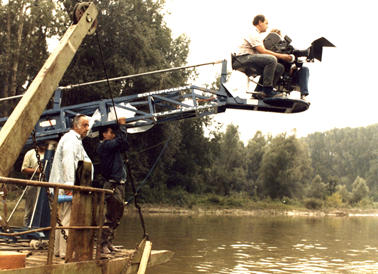
Aleksandar Petrović on Migrations
Impossible Serbia
From conversations with Frederic Vitoux:
“Not only did Miloš Crnjanski write in MIGRATIONS the most important piece of Serbian literature, but surely one of the most powerful of the century, on par with THE MASTER AND MARGARITA. The director Alexandar Petrović, who in the past triumphed in Cannes with I EVEN MET HAPPY GYPSIES, could talk for hours with the same enthusiasm. He finally achieves a thirty-year-old dream: adapt MIGRATIONS on the screen in a Franco-Serbian coproduction nine months into filming and whose first showing is scheduled for next April.
MIGRATIONS is a great novel about the Serbian diaspora of the 18th century. For three years, the Turks occupied Serbia whose population escaped to Austria. Some enlisted in the army of the empress Maria-Teresa. Others became merchants or artisans. Their orthodox religion created obstacles to their social integration within the empire… The first book is initially poetic, the lyricism amalgamated to history” Petrović said. “Each chapter has a title that resembles a verse, and this poetic resonance is revealed from page to page. In the second book, the narration is calmer and deeper. What mattered in the first part was the characters’ destinies. After that, the vision is extended. Each individual’s destiny personifies the destiny of a nation, which in turn epitomizes the destiny of humanity… Serbs, those marginal people of Central Europe shredded by History, survived centuries in the illusion of the promised land. They went from west to east, they believed they could find rest in Austria, then they turned to Russia. In the end, the tragic destiny of these people is that they were looking elsewhere for something they had within themselves. For Crnjanski, death does not exist – only migrations do.”
With a magnitude and minutia that will leave you breathless, the author – a visionary of sorts – alternates between close-ups, the most secretive, most convulsive palpitations of any individual, and long shots, with the chaos and fracas of thousands of soldiers, armies and marching populations, such as in long panoramic shots filmed on 70 mm film. And always with poetic brilliance, a fantastic climax that lights up the scene. Petrović confesses: “It is fantasy that I will develop in the film. It is neither external, nor artificial, but stems from the characters’ and situations’ intimacy. I think of Daphina, who has a vampire side, demonic, or of Pavlé with his unfathomable melancholy who, for me, is one of the most beautiful characters in literature… In 1957, after I first read Migrations, I wrote to Crnjanski, I then met him in London. We clarified the adaptation project when he returned to Belgrade from exile. He had seen “I Even Met Happy Gypsies” which took place in Vojvodina, the same setting as Migrations, and with the melancholy of the landscapes that drown themselves in the Danube, this same incurable melancholy that afflicts Pavlé, the same one we maybe see more of in Gypsies, in ourselves, but one that exists in every human.”
Alexander Petrović knows: adapting MIGRATIONS is crazy. But is there not already craziness in this book? Along with the tragic bursts, the metaphysical bursts, those big dreams that come crashing down?
LE NOUVEL OBSERVATEUR / LIVRES (1986) – Frédéric Vitoux
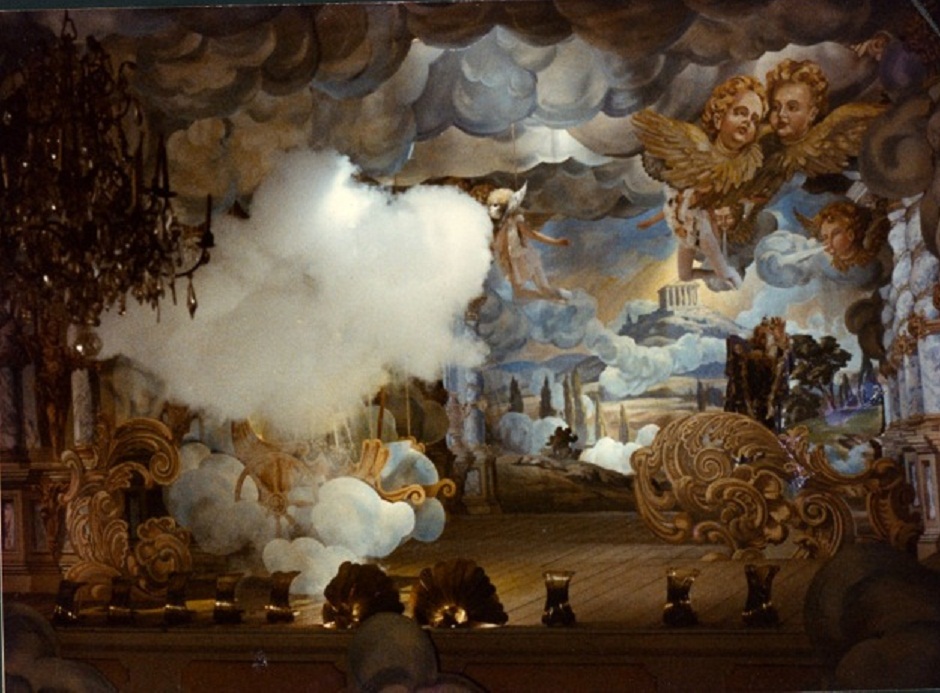
Migrations
Throughout the history of a family, the epic of 18th-century Serbia. To free itself from the Austro-Hungarian Empire, this small population looked toward Russia. Time has divided this debate: however, not toward freedom, and not toward the Serbs.
“It’s a book whose story can obviously not be told (however, the filmmaker Alexandar Petrović will make a film out of it). Migrations simply brings out the world: villages, cottages, palaces, cities: multiple faces frozen with boredom, surprise, or hatred; landscapes and rivers; everything starts at the Danube, and everything ends at the Dnieper. The splendor of smells: the one that hangs above the farms during the early Autumn mornings; the smell of sweating horses and exhausted men; the smell of Viennese houses and palaces filled with women, divans and bouquets. All of this is in a spiritual and desperate stampede. Crnjanski is a Melville haunted by Dostoyevski. It took ten years to finish the translation of Migrations. It will take less time for the novel to take its place amongst the masterpieces of Slavic literature.
LE POINT (1986)
L’AGE D’HOMME publishes Migrations in 1986. The novel receives the AWARD FOR BEST FOREIGN NOVEL IN FRANCE.
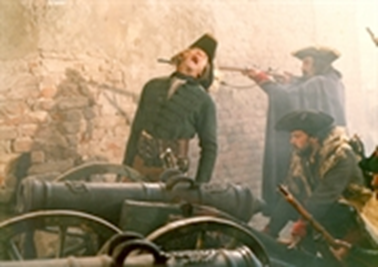
Alexandre Petrovic shoots “MIGRATIONS”
A SERBIAN RHAPSODY
A saga is becoming an extraordinary production
Extraordinary swamps of northern Yugoslavia lost villages of the 18th century, Moravian castles, these are some of the settings where Alexander Petrovic began filming “MIGRATIONS”, adapted from Miloš Crnjanski’s saga. Men and horses participate actively: many actors for a spectacular film with two destinations: a full feature film on the first part of the novel, and a television series of six episodes for the second.
“I always thought that Migrations was a seminal work, Petrović said. I always wanted to adapt it for the screen. First of all, because it is a wonderful story whose heroes epitomized the margins of Central Europe in the 18th century – and what is marginalized is always interesting.
Second of all, I find it very relevant to the present day. There is a striking parallelism between this time and our own; a time of migrations and population mixing, where the old rules have fallen without giving rise to new ones, where values have been lost, and where people live in disorder and indiscipline, looking for something that has not yet been born. It is this time of change and confusion during important moments of mutation that I want to express, all the while conserving a writer’s rhapsodic tone.”
The director of I even met happy gypsies brings in his new cinematic adventure Isabelle Huppert, Richard Berry and Avtandil Maharadze (Georgian actor of Repentance) who form the central trio of the story. A Serbian mercenary, Vuk Isakovic (Maharadze) goes to fight in the ranks of the Austrian army, leaving his young wife (Huppert) with his brother Archangel (Berry), who burns with passion for her. They are joined by Bernard Blier, Jean-Pierre Cassel, Marina Vlady, Christine Laurent, and many French and Yugoslavian actors in this epic saga whose most minor originality is to not have an original French version…” LE FIGARO (1987) – Marie-Noëlle Tranchant
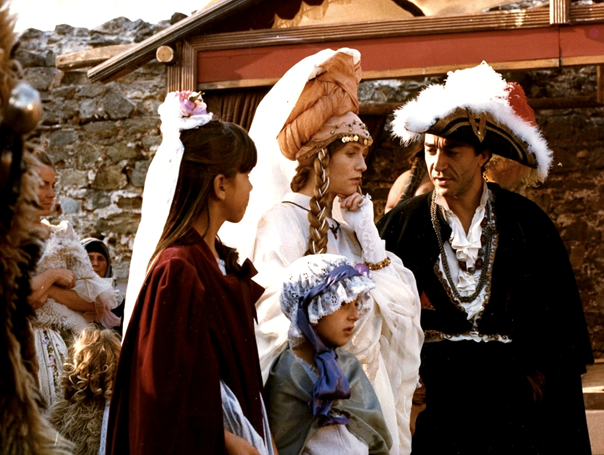
Petrovic films “MIGRATIONS”
I EVEN MET A HAPPY DIRECTOR
With Isabelle Huppert and Richard Berry, he reconstitutes an episode
in the Serbian adventure of the 18th century
Springing onto his horse, an officer in a white cape and three-cornered black hat traces a fiery diagonal in the autumnal garden of this 17th-century palace in old Zagreb. The heavy double-paned gate opens in front of a noisy harness whose coachman is accompanied by a valet presenting the effigy of a saint as an offering. In the back, enigmatic like a Van des Weyden portrait, her skin pale under her twisted braids and Venetian blonde locks that frame her delicate face, protected by a large satin grey coat hemmed with white fur: Isabelle Huppert. Next to her, Richard Berry, hair pulled back and elongated on his neck with a “rat’s tail”, dressed in black, provokes some chaos as he throws coins to a hoard of shabby beggars, half-naked children that fight to pick them up while dodging the dogs and donkeys. Monks with long robes and cylindrical hats shoo them, while elegant bourgeois dressed in 18th-century clothing observe the scene.
Perched on his crane in the silent cold air, Alexander Petrović controls this astonishing tableau. Where another director would see a simple passing of carriages, he makes many actions meet that will feed the narrative with meaning, emotion, beauty, and lyricism. With him, love and faith, politics and economics, the need for action and for dreams, the madness of men, and the indecipherable mystery of destiny concretely weave the weft of Migrations, this historical fresco written by the Serbian writer Miloš Crnjanski.
“With this film, cinema reminds itself that it encompasses all other art forms”, Isabelle Huppert tells me during a break. After the United States, Australia, Poland, and Italy, her “image” is constantly remade. “But being an actress, it’s being in a state of strangeness”, she notes. “And acting, it’s trying to escape from yourself. Daphina, that I play: her husband, Vouk (played by the Georgian legend Avtandil Maharadze, who made his break in “Repentance”), a Serbian mercenary who went to war in 1747 with the Austrians, left her with their children to his brother Archangel, played by Richard Berry. But Archangel, who already secretly loved Daphina, brings her to a man (that is the scene we just filmed) to get her marriage annulled. Cursing her husband for having abandoned her, resisting her brother-in-law, colliding with herself and others, Daphina is in permanent conflict. But I’m feeling well in touch with her troubles, because like Daphina at the beginning of the film, I am pregnant…”
More mysteriously beautiful than ever, Richard Berry doesn’t often play Casanovas… “If Archangel shakes the skies and the earth, it’s because, with this wild love and pain, he discovers the ability to surpass himself. It’s possible because, with Petrović, everything is Baroque, oversized. He uses everything that is possible for him, down to the dregs. He is the master of this work at all levels. This time, the admiration I have for a filmmaker is rewarding. I can fantasize with this ambiguous Archangel. I’m enjoying taking part in an exceptional film, both spectacular and intimate, of a magnitude and force we thought had been lost, a film of action, emotion and ideas. And on top of that, breathtakingly beautiful, which should take it around the world…”
In the effervescence of preparing the next shot, Petrović walks slowly, head down. But in passing, he caresses the muzzle of a horse, to thank him for his participation.
“We must restore cinema’s true dimension, making it as much a spectacle for the soul as well as for the eyes,” Petrović said to Gilbert Guez LE FIGARO (1987)
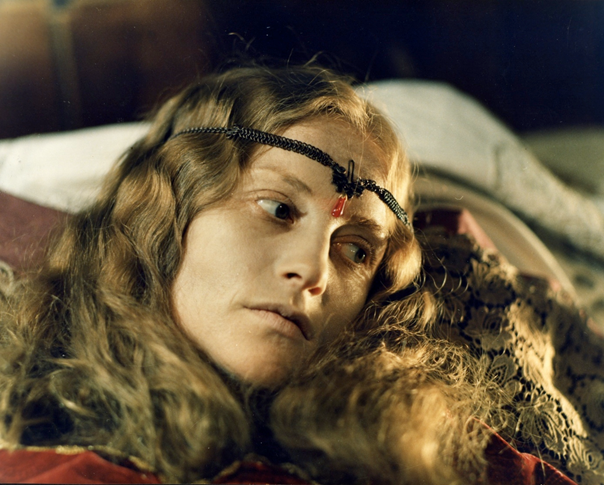
Isabelle Huppert
Isabelle Huppert shoots MIGRATIONS by Alexandar Petrović in Yugoslavia…
Isabelle is all sensibility and passion. Aleksandar Petrović was not mistaken. He trusted her with a superb role in his film next to Richard Berry. She plays the wife of a mercenary engaged in the wars of the 18th century. A grandiose fresco whose filming is currently taking place in Yugoslavia…”
VOICI (1988) Stéphane Singlard
“… With a team of 280 international souls, the Franco-Yugoslavian co-production is based on an epic novel that received the prize for Best Foreign Novel in France in 1986. The historical saga about two generations of Serbian emigrants in the 18th century, which incorporates many battles and love stories, is imagined as a two-year production venture for a feature film and a television series (in six episodes). The director, Petrović, who was nominated for an Oscar for his war film TRI and I EVEN MET HAPPY GYPSIES, had political troubles in Yugoslavia, but here he is back, in an atmosphere of “new look,” bringing together the great stars of French cinema and the soviet sensation Maharadze…
An added value is the cinematographer Igor Luther, already known for his work in Volker Schlödorff’s “The Drum”.
FILM AND FILMING (Great Britain) 1987 – John Helford
Comments collected by Boro Draskovic – “POLITIKA” during the filming of MIGRATIONS in 1987 in Yugoslavia:
Richard Berry on Alexander Petrović – Sacha
“… I love how Sacha Petrović understands everything, sees and is able to talk about the rosary you hold, the ring, the socks, the pocket you will need… just as much as he can talk about the camera movement, the lighting, the food that we will eat… I think that I have never met any director like him… He is brilliant. Completely open to people, he knows how to earn the respect and trust of his collaborators, those of the actors as well as mine…”
Igor Luther (cinematography) talks about Aleksandar Petrović
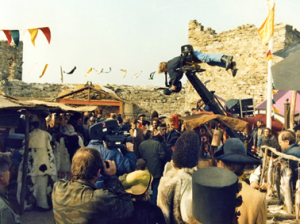 “… Sacha Petrović has inspiration and I have a lot of hope that we will make a valuable film, the one that everyone wants to see… I really love the style which is not narrative, and the fact that Sacha has a subjective approach on the theme of Migrations, not simply exposing images and historical facts. The filming of Migrations, is an initiative of exceptional importance and scope, it requires special effort, concentration, and energy with the constant change of faces, landscapes, and seasons. This enchants me. I am very happy…”
“… Sacha Petrović has inspiration and I have a lot of hope that we will make a valuable film, the one that everyone wants to see… I really love the style which is not narrative, and the fact that Sacha has a subjective approach on the theme of Migrations, not simply exposing images and historical facts. The filming of Migrations, is an initiative of exceptional importance and scope, it requires special effort, concentration, and energy with the constant change of faces, landscapes, and seasons. This enchants me. I am very happy…”
Story of a confiscated film
Who will free “Migrations”?
Petrović’s film is imprisoned in Clamart
At the back of a film lab in Clamart, an exceptional film that audiences are not allowed to see has been dormant for five months. The reason for this imposed clandestinity: murky conflicts between producers and financiers- discrete maneuvers to slow down the process by the Yugoslav administration. All of this is stupid enough to cry over, except for the lawyers, who are doing well.
Film title: Migrations. Director: Aleksandar Petrović. Actors: Isabelle Huppert, Richard Berry, Bernard Blier, etc. A black and red story filmed on the banks of the Danube. Horses, mud and blood. The meaningless violence of war. The drama of a dominated people. Against this backdrop, a passion both beautiful and sad like the long clouds above the river.
Migrations is a large novel. The story of its birth is, itself, a grey and cold epic. Its author, Miloš Crnjanski, was born in Serbia in 1893. In August 1914, he was drafted into the Austrian army: a mercenary. He will be forced to fight against his own country. Migrations will come directly out of this morally insufferable situation. It was in 1929, that he wrote and completed his novel. In 1941, he fled the occupation of Belgrade and took refuge in London. To survive, he worked ten jobs: driver, waiter… He didn’t complain. In 1949, he began writing the second part of his book. Released in 1963, it became an extraordinary success. Crnjanski returns to Belgrade. Around 1975, he realizes that he was sick. Two years later, he dies; some say that he let himself die.
The story continues. In 1986, Migrations was published in French by L’Age d’Homme editions. New astonishment in front of this unclassifiable book. In Yugoslavia, the novel takes on the appearance of a manifesto. It was then that Aleksandar Petrović decided to bring this huge machine to the screen.
Curious destiny
Objective: a two-hour film covering the first volume. Then six hours for the rest of the book, for use on the small screen. Isabelle Huppert and Richard Berry will play the roles of the cursed lovers. Filming lasts a little less than a year in Yugoslavia and Czechoslovakia. Here is the finished film. Unfortunately, for the moment, this monument remains a legend. The river, the horses, the Austrians, the mercenaries and the lovers rest in the traditional round tin boxes.
Curious fate. As if the curse that led to the non-publication of the novel for years fell onto the film today. However, the theme seems banal. Marie-Theresa, empress of Austria (we are in the 18th century) wants to make war on the French before going after the Prussians: music, uniforms and fantasy. The dead don’t count. Marie-Theresa, moreover, expedites the Serbs- who, for her, are not quite men- before the canons. Yet they are ready to do anything to reclaim a parcel of independence. They, of course, will fail and their descendants will choose to go into exile in the land of the free: Russia. Unfortunately for them, Russia is an ocean in which all will drown.
On this theme, the two screenwriters, Aleksandar Petrović and Jacques Doniol-Valcroze (for whom this will be one of his last works) create a tragic story that closely follows the novel. Who will say the baroque sumptuousness of images and the parallel hopelessness of these lives?
We would like to understand why this amazing film is not allowed to see the light of day. If it is money, it would be reasonable to offer it to the attention of the spectators. After all, they and they alone pay to watch it. The eternal merchants of Venice would finally earn their pound of flesh.
Georges SUFFERT. LE FIGARO. November 16, 1989
The Directors Fortnight in Cannes
Migrations was part of the program for the Directors’ Fortnight at Cannes in May 1994. The poster and the press book were ready. Unfortunately, for obscure reasons, the co-producers prevented its distribution, and Petrović, then between life and death in the hospital, could not intervene. The film was never shown at Cannes.
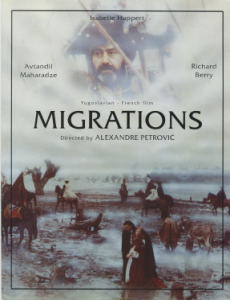 |
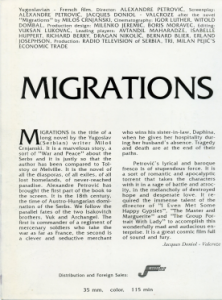 |
Quote from press book:
“… Petrović has created a lyrical and baroque fresco of stupefying force. A sort of apocalyptic romantic torrent carries the characters away in the chaos of battles and atrocities, in the melancholy of shattered hopes and desperate loves. It took the immense talent of the director of “I even met happy gypsies,” “The Master and Margarita” and “Group Portrait with a Lady” to carry out this magnificently crazy and audacious enterprise. It is a grand cosmic film full of noise and fury.” Jacques Doniol-Valcroze.
Le Monde 08/08/1991 – Jean-Michel Frodon
INTERVIEW WITH THE DIRECTOR ALEKSANDAR PETROVIĆ
“How to still believe?”
Balkans: are the Serbs crazy?
Le Figaro Magazine 04/10/1999- Jean-Christophe Buisson
“Aleksandar Petrović: gone five years ago, this director left three major films. I Even Met Happy Gypsies, Grand Jury Prize at Cannes in 1967, a brilliant adaptation of The Master and Margarita by Bulgakov, and namely Migrations, inspired by Crnjanski’s novel, with Richard Berry, Isabelle Huppert and Bernard Blier. A 1989 film curiously still unseen in France.
CAHIERS DU CINEMA (N°477 – 1994)
– Those who film…
SASHA PETROVIĆ Letter to Isabelle Huppert
To my dear Isabelle,
A few words in memory of a film we shot before this dirty war (he was mentioning the ongoing breakup war of Yugoslavia).
The end of the world is near, let it end, it won’t be a pity.
At the beginning of 1992, Branka and I just crossed the Yugoslav-Hungarian border. I turn on the radio… The presenter announces: “Yugoslavia no longer exists”… The Arbitration Commission for the Yugoslav Crisis published its “report”: Yugoslavia no longer exists, because on the basis of the Yugoslav Constitution of 1974- still valid- “Federal republics have the right to secede from the Federal Republic of Yugoslavia”. The countries of the European Union decided to recognize the “sovereign” state of Slovenia, which had seceded, thus sanctioning the breakup of Yugoslavia.
I would like to point out right away that the previously mentioned Yugoslav Constitution now contains a provision according to which the international borders of the Yugoslav Federation cannot be changed without the consent of all federal republics.
To clarify: no republic can leave the federation without the consent of the others.
At the time of Slovenia’s secession, four republics opposed it: Serbia, Bosnia and Herzegovina, Montenegro and Macedonia, and Croatia has not yet declared itself. The EU supported the views of the communist mobsters, “the little Tito”. Everyone wanted to be the master of his fiefdom. The President of the Republic of Slovenia, Milan Kučan, was the President of the Communist Party. Franjo Tudjman, the President of Croatia, was a communist general, and head of counterintelligence.
The President of Serbia, Slobodan Milošević, was the President of the Communist Party of Serbia. The President of Bosnia and Herzegovina, Alija Izetbegović, was a theoretician of Islamic fundamentalism. Finally, the President of Macedonia, Kiro Gligorov, was one of Tito’s close associates, specialized in banning works of art that did not conform with political ideology.
Thus began the diabolical orgy! The tragedies of Vukovar, Pakrac, Sarajevo, Mostar, Dubrovnik, and Bratunac with around 50,000 dead and 20,000 severe war invalids, with a procession of several hundred raped women and hundred of thousands of refugees, Muslims, Serbs, Croats, with the disappearance of my and Branka’s homeland. Our homeland.
I told Branka: “If these political hustlers had first organized elections at the federal level, as the Constitution provided, and not at the level of the republics, as they did, 70% of the 24 million Yugoslavs would have voted for the survival of Yugoslavia!
I also said this, based on the law of History. Modern civilization does not allow secession for nearly 200 years. In 1886, the world did not recognize the Southern States of America, just as it did not recognize the secession attempt of several Swiss cantons, which was prevented by arms, or Quebec, as well as a part of Australia in 1934, and not even the secession of Biafra drowned in a sea of blood.
During the so-called “war” in Slovenia, the “attacked” Slovenian militia did not lose a single man, while the unarmed young men from the so-called Yugoslav army were massacred, or captured, then sent half-naked to Serbia, Bosnia, Montenegro and Macedonia.
I apologize for these bitter words, but it is not easy to lose your homeland when you are over sixty years old.
In 1988, your and my crew of the film Migrations filmed the scene of the capture of Saverne during the 1747 French-Austrian war. Saverne was playing the role of the Yugoslav town of Vukovar! Our “film army”, which consisted of hundreds of extras, was composed of citizens of Vukovar. Like in Vukovar, a third of our army was made up of Croats, another third of Serbs, and the rest were Hungarians, Slovaks, and a few Germans.
This army was led by a Georgian, our dear Georgian Avtandil Maharadze. Bernard Blier and Richard Berry were also part of this campaign, while you, dear Isabelle, waited on the Danube banks for the end of this mad war.
Our “film army” occupied Saverne/Vukovar in three days- no one was killed, not even wounded, not a single house was destroyed.
In 1992, with three hundred tanks, the Yugoslav army besieged Vukovar for three months! The city was completely destroyed when it finally captured it.
Today, various commissions are trying to determine who (Croats, Serbs, Muslims) killed more innocent people.
CONCLUSION:
It is better to make movies than make war.
LONG LIVE CINEMA- DOWN WITH WAR!
Friendly, your Sacha.
Alexandre PETROVIC
Screenwriter and director



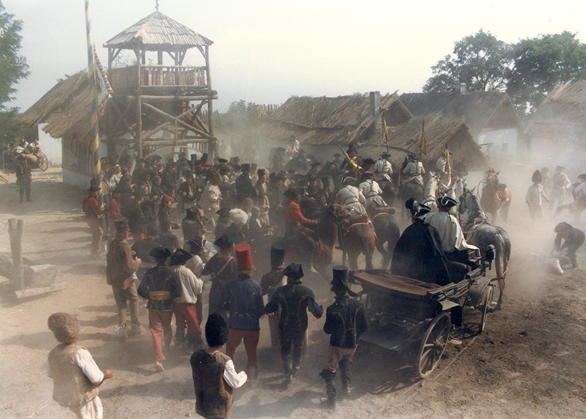
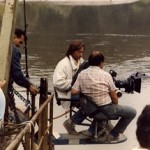
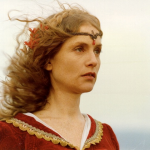

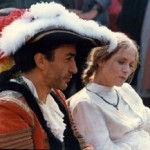
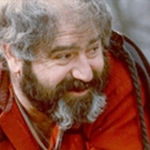
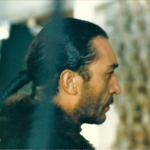
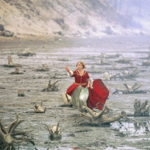
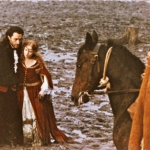
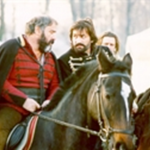
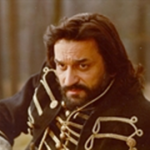
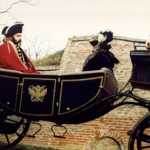
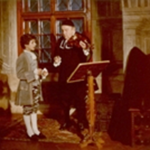
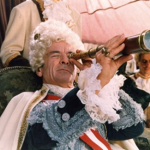
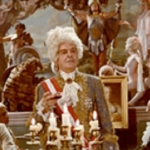

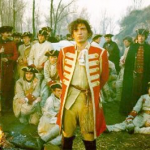
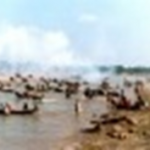
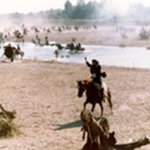
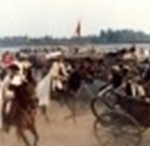
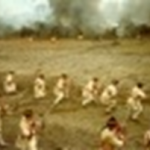
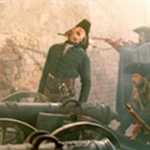
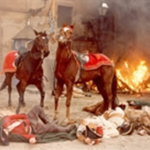
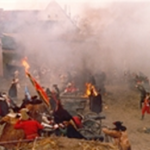
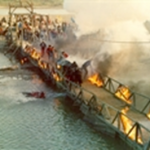
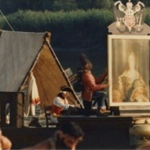
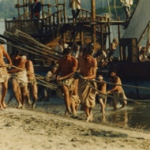
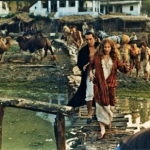
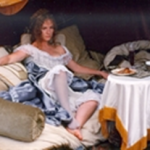
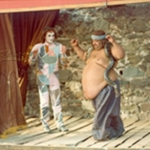
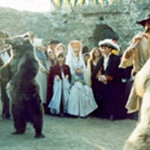
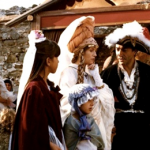


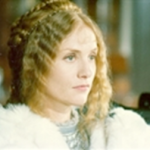
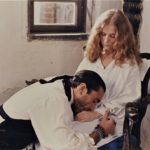
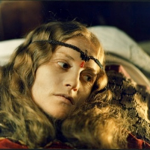
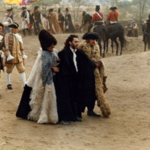
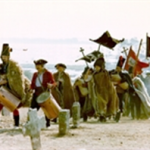
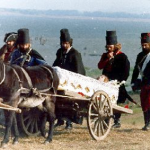
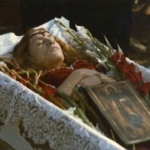
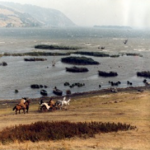
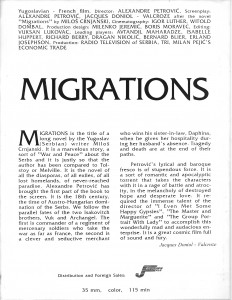

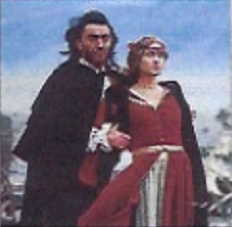
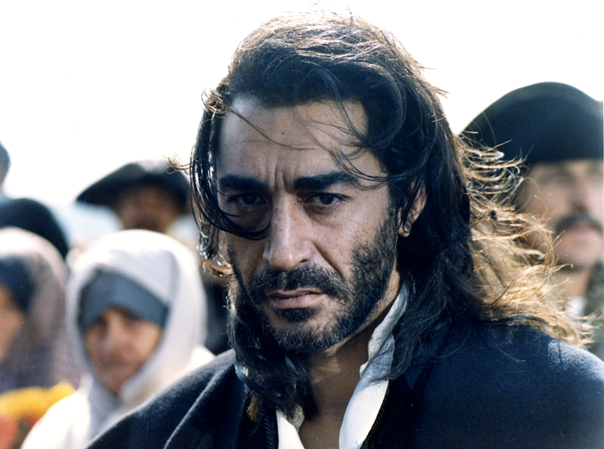
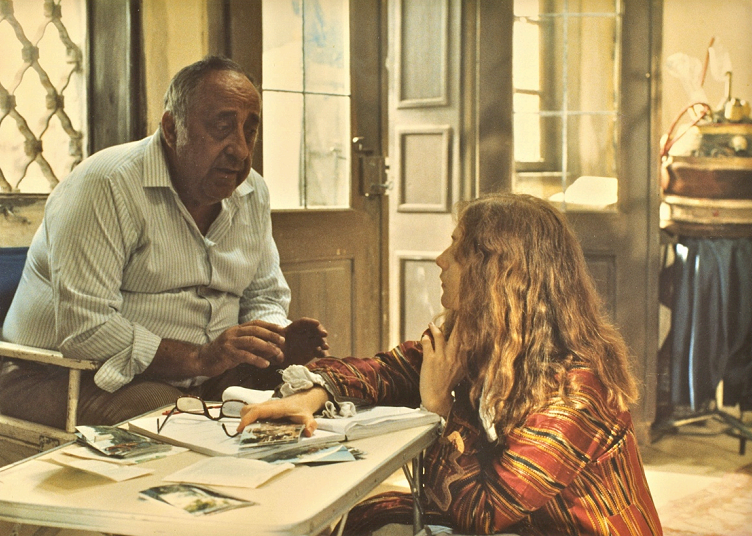
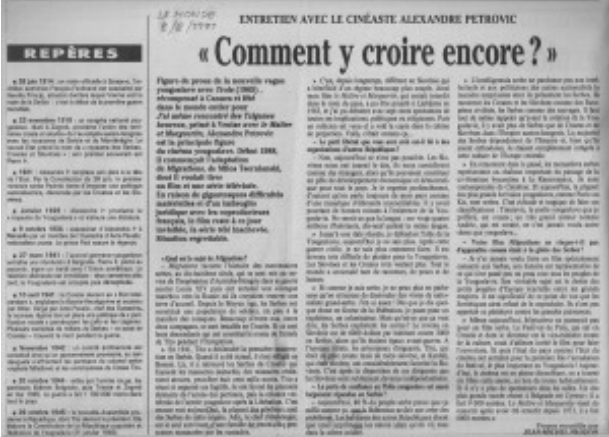


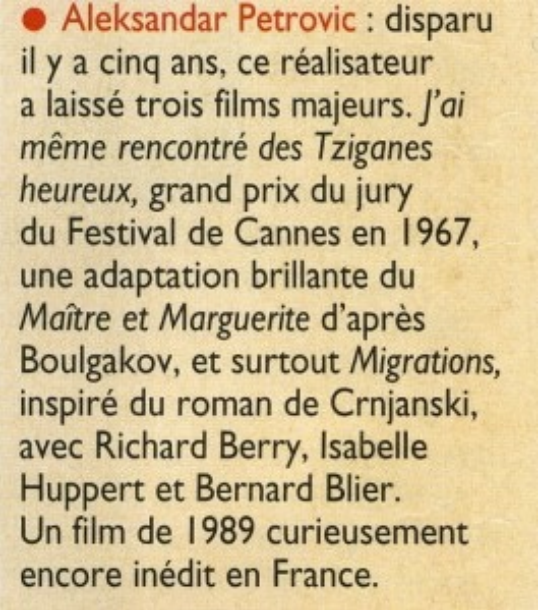
Leave a Reply
You must be logged in to post a comment.